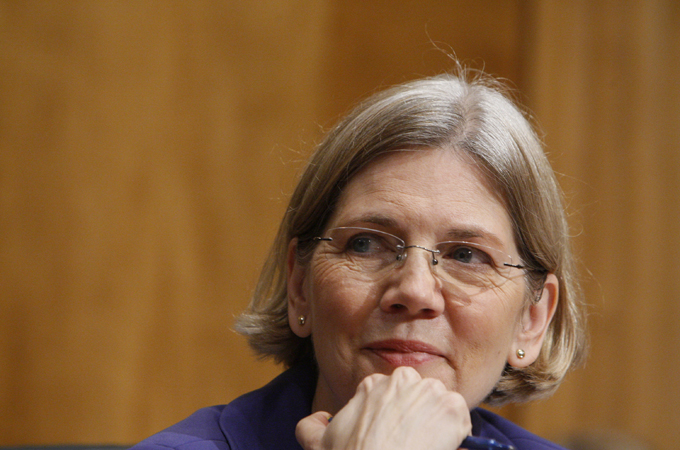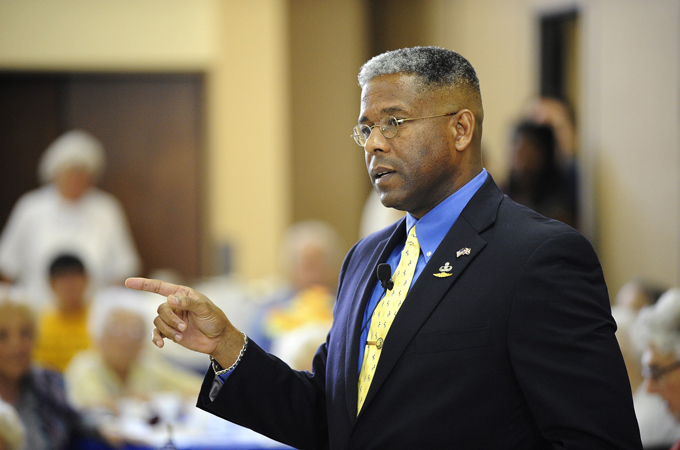Seven other US elections to keep an eye on
From legalising pot to ending the death penalty, voters in some US states will choose more than just the next president.

On November 6, the big story will be whether Barack Obama wins a second term in office as the US president.
But further down the ballot, a slew of state-wide elections will have big national effects as well – from initiatives to legalise marijuana in Colorado and Washington to a high-profile, hugely expensive Senate race in Massachusetts.
Learn about the most prominent of these “down-ballot” races:
|
Massachusetts: The most expensive Senate race in 2012
|
 |
| Elizabeth Warren was the brainchild behind the new Consumer Financial Protection Bureau [GALLO/GETTY] |
Perhaps the most high-stakes Senate race to be decided on November 6 is the Massachusetts Senate race between Elizabeth Warren, a Democrat, and Republican incumbent Scott Brown.
Warren, a professor at Harvard Law School who specialises in bankruptcy law, became a hero to many progressives due to her passionate advocacy for a Consumer Financial Protection Bureau to regulate credit cards, mortgages, and student loans. If she wins, Peter Ubertaccio, a professor of political science at Stonehill College in Massachusetts, surmises she will probably “become a national spokesperson for those issues within the Democratic party”.
However, Warren has taken flak after it was revealed that she claimed her ethnicity was Native American when applying for a job at Harvard University (Warren said members of her family believed they had Native American ancestors). And although Massachusetts is a heavily Democratic state, Scott Brown is relatively moderate compared to other Republicans, and sports decent approval ratings. Furthermore, “he’s had two full years of high name recognition, national visibility, and a significant amount of fundraising,” Ubertaccio told Al Jazeera.
Brown and Warren have uniquely agreed on a truce in which both will discourage outside groups running advertisements in Massachusetts. Meanwhile, the candidates have raised a combined $53m, making it the most expensive congressional race in 2012 so far.
Although polls had shown the two running neck-and-neck, Warren – who spoke in a prominent slot at the Democratic National Convention in September – has since emerged with a narrow lead.
|
Ohio: A staunch liberal in a swing state
|
 |
| Republican Senate candidate Josh Mandel hopes to unseat Democratic incumbent Sherrod Brown [AP] |
As in the Massachusetts Senate contest, the Ohio Senate race is shaping up to be one of the most expensive in the state’s history. Sherrod Brown, a liberal Democrat, is up for re-election against Tea Party favourite Josh Mandel, the state treasurer and an Iraq War veteran.
Outside conservative groups operating independently from Mandel have already spent at least $19m against Brown, in what the Washington Post called a “virtual shadow campaign”. The Supreme Court’s Citizens United ruling in 2010 permitted unlimited spending by corporations and unions on political advertisements, so long as the ads are not coordinated with the candidates’ campaigns.
Why is so much money being spent on the race? Cliff Schecter, a writer and public relations strategist based in Ohio, thinks it is because of “the combination of where [Brown] is located and the targets he’s chosen to go after”.
“[Brown] doesn’t just vote against things like free trade,” he told Al Jazeera. “He literally leads the fight against it.” Brown is vigorously pro-union, has sponsored legislation to break up big banks, and has staunchly opposed renewing Bush-era tax cuts for wealthy Americans.
Polls had showed a narrow gap between the two in early September. But Brown has since broken away from Mandel, and his lead currently hovers in the high single digits.
|
Colorado, Oregon, Washington: Legalising marijuana
|
 |
| Medical marijuana is already legal in Colorado [Reuters] |
Colorado, Oregon, and Washington State could become the first states in the US to legalise small amounts of marijuana if a majority of voters say yes.
Six years ago, Coloradans voted against a similar measure. But today, polls show the amendment, which would tax and regulate the herb, stands a strong chance of passing. Democrats and young voters are likely to support the amendment, while Republicans and old voters tend to oppose it. Medical marijuana is already legal in Colorado, and there are more than 700 dispensaries.
“I think there are an increasing number of voters out there who might not like the concept of drug legalisation, but look back on the drug wars of the last 30 or 40 or 50 years and say we’ve spent gobs of money on that and it hasn’t been effective,” said Eric Sondermann, an independent political analyst based in Denver, Colorado.
Legalising marijuana would put Colorado – and Oregon and Washington – in unchartered territory, as the federal government still considers the drug to be illegal under the Controlled Substances Act. This could potentially set up jurisdictional disputes. “I think that would have to be litigated if the Colorado initiative passes,” Sondermann told Al Jazeera. Whether this happens depends partly on whether Obama is re-elected. “The Obama Justice Department has made marijuana enforcement a pretty low priority,” he said.
Washington’s Initiative 502 and Oregon’s Measure 80 are similar to the ballot measure in Colorado: they would tax, regulate, and legalise small amounts of cannabis.
|
California: Abolishing the death penalty
|
 |
| The death chamber in California has not been used in six years [AP] |
California has not executed anyone in six years. But if the state’s Proposition 34 is approved by voters, the death penalty will be disallowed in America’s most populous state. The punishment would be replaced with life in prison with no chance of parole.
Seventeen states have already abolished the use of the death penalty, including five in the past five years; however, public opinion in the United States has consistently favoured its use. The vote looks to be close in California, however: a poll conducted in September 2012 found 42 per cent of Californians support Prop 34, 45 per cent oppose, and 13 per cent are undecided.
Interestingly, some high-profile supporters of the death penalty in California have now spoken out in favour of abolishing it, arguing that the system is too expensive and that the appeals process takes too long.
In another unexpected twist, many death row inmates oppose the proposition, because although its passage would get rid of the death penalty, it would also remove state funding for lawyers for death row inmates after the first round of appeals.
|
Washington, Maryland, Maine: Legalising same-sex marriage
|
Although a narrow plurality of Americans – including President Obama – say they support same-sex marriage, only six states currently allow gay couples to marry. All but one of these states are in the Northeast, one of the most liberal regions in the United States.
But in November, voters in Washington, Maryland, and Maine will choose whether to extend marriage rights to gay couples. Polling data indicates that, at the moment, all three stand a good chance of passing.
Although public opinion has shifted towards support of same-sex marriage in the past decade, in recent years many states have passed constitutional amendments banning same-sex marriage and civil unions – another form of recognition for gay couples. In California, a ballot measure called Proposition 8 struck down same-sex marriage in 2010, which had briefly been legal there (a district court found the proposition to be unconstitutional, and the US Supreme Court is currently hearing the case).
|
Minnesota: Requiring voter ID
|
Since 2008, many US states have introduced or strengthened voter ID laws that require citizens to show photo ID before casting a ballot. In Minnesota, voter ID legislation will be decided at the polls this November.
Proponents of voter ID bills say they minimise the risk of voter fraud. The Center of the American Experiment, a conservative think-tank based in Minnesota, argues that “in light of Minnesota’s loose voting rules and disputes over recent elections decided by razor thin margins, the amendment offers a sensible solution”.
Opponents, however, say the law disproportionately affects minorities, the elderly, and the poor – groups that are less likely to have government-issued ID – and note that instances of in-person voter fraud, in which someone casts a ballot in another person’s name, are rare.
|
Florida: Controversial congressman faces tough re-election fight
|
 |
| Allen West is one of the most conservative members of Congress [Reuters] |
Allen West became a Tea Party darling in 2010 when he ran for, and won, a congressional seat in southern Florida.
He has also become a lightning rod for liberals, who cite his many controversial statements and note that when West served in the military, he was charged with assault against an Iraqi policeman during an interrogation.
West has described Social Security disability insurance as “a form of modern, 21st-century slavery”, and in January 2012 exhorted Obama and congressional Democratic leaders to “get the hell out of the United States of America“.
Both candidates, especially West, have raised big money: West has taken in $10.75m this election cycle, and his opponent, 29-year-old accountant Patrick Murphy, has raised more than $2.3m.
The contest has attracted national attention, with Democratic House Minority Leader Nancy Pelosi saying West’s defeat would be “sweet” for the country.
Follow Sam Bollier on Twitter: @SamBollier